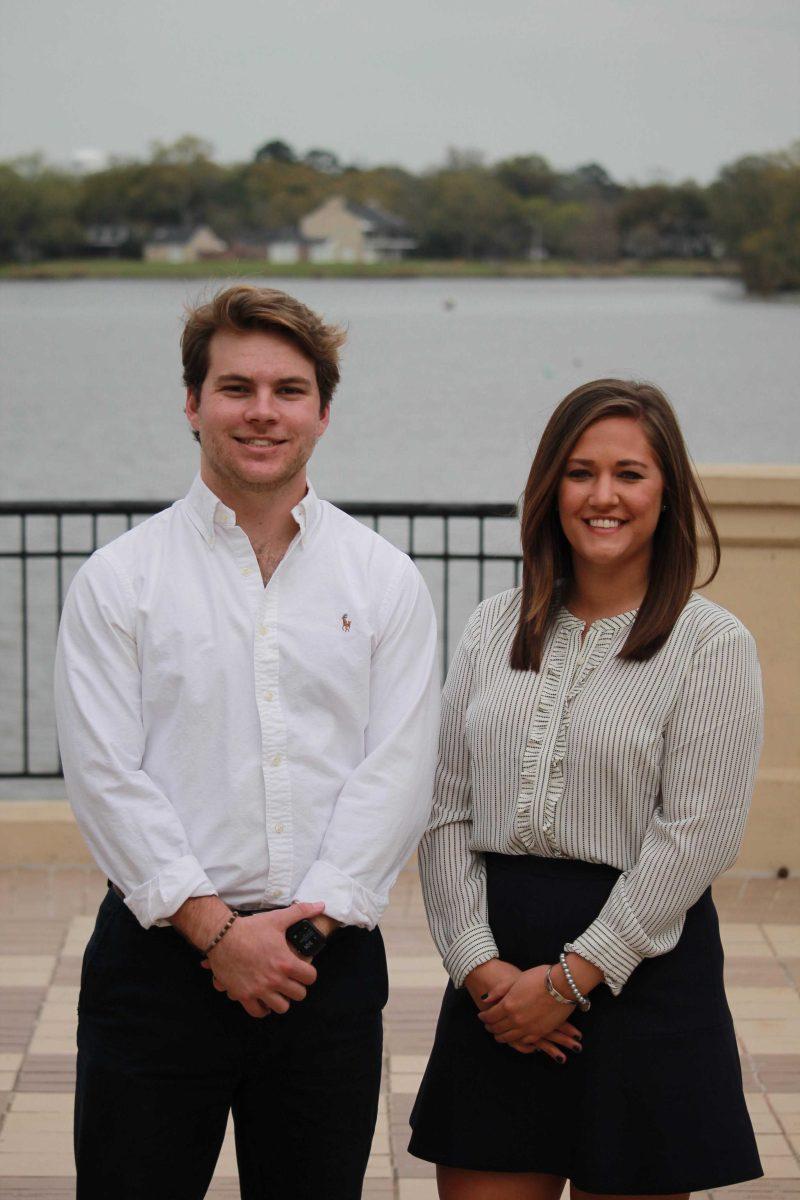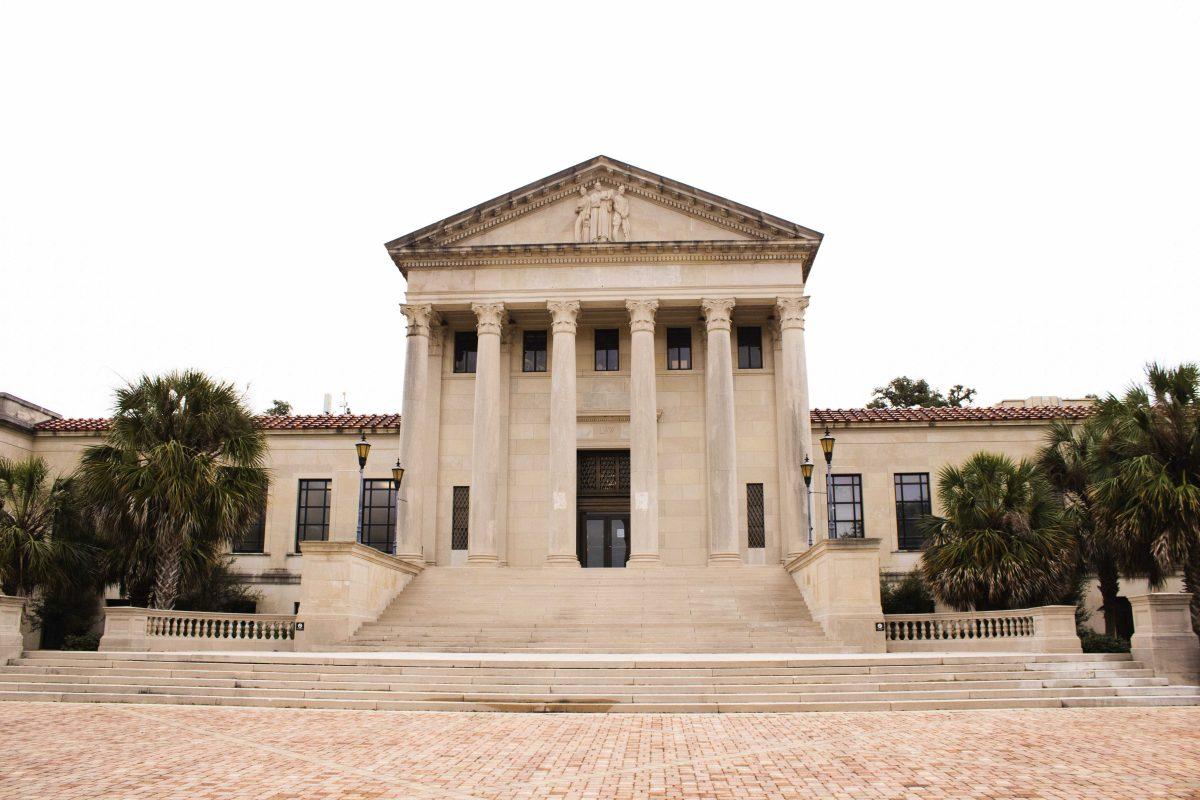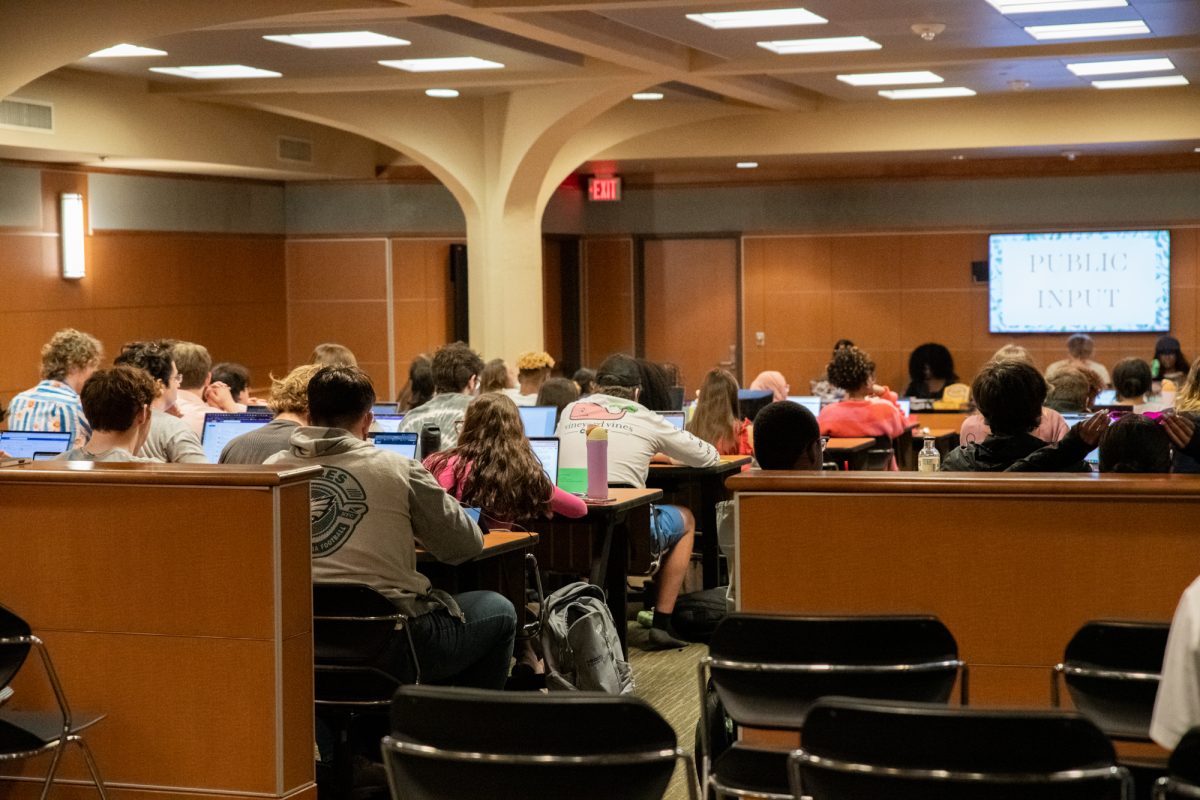LSU Student Government president Jason Badeaux and vice president Leah Sanders plan to emphasize student safety as they finish out their year of initiatives.
“As we go through our term and even into the next few years, the important thing is that we continue to make sure we’re working on the best interest of the students and the students’ safety,” Badeaux said. “That’s what we’ve done last semester and will continue to do this semester.”
They are already working on several new initiatives to better students’ safety, convenience and enjoyment for the spring semester. Following two armed robberies on campus, both Sanders and Badeaux stressed the importance of downloading the LSU Shield App.
“There’s a very large disparity of people who have the LSU [Mobile] App and don’t have the Shield App,” Badeaux said. “We highly suggest everyone download the Shield App, as well.”
The LSU Shield App allows students to call LSUPD to wherever they are on campus, send crime tips to public safety forces and even let friends track their location if they feel unsafe.
Another safety issue brought to attention involves off-campus apartment complexes.
“There’s a lot of apartments around campus that are very student-dominated,” Badeaux said. “The student apartments look nice, but they’re not very secure. They’re not very safe. There are a lot more calls for service to the Baton Rouge Police Department and DA’s office than there are in other locations around town.”
To combat these concerns, Sanders and Badeaux are working on partnering with LSU Office of Environmental Health and Safety, LSUPD and the district attorney’s office to come up with a platform to incentivize increased safety for these apartment complexes, they said.
They plan to create a panel to meet annually to review apartments who want to be labeled by the University as “gold-standard,” Badeaux said. Those apartments would have to meet a certain number of requirements made by the panel to achieve this title. The University would then recognize gold-standard apartments and potentially time bus routes in favor of them.
The SG president and vice president are also reviewing the SG election code.
“There’s a lot of things that just make it difficult for people to campaign,” Badeaux said. “The election code, instead of focusing on the overarching elections, likes to pick apart very specific issues. And that’s not the way the election code should be written.”
One of these key issues, Badeaux said, is the way the code creates problems for the budgeting of election campaigns. Each candidate has a spending limit they can use to campaign. However, the money can only be spent if the candidate is opposed by another candidate on a separate ticket.
The candidates will find out if they are opposed just two weeks before the election takes place. The process of buying supplies and preparing a campaign takes much longer than the two weeks allotted by the code. This is just one aspect the SG executive branch looks to change before the next election, Badeaux said.
Along with these new initiatives, Badeaux and Sanders said they are also looking into making changes to the University’s grade exclusion policy to make things easier for students, and potentially partnering with a company like Uber to continue to improve safety on campus.









